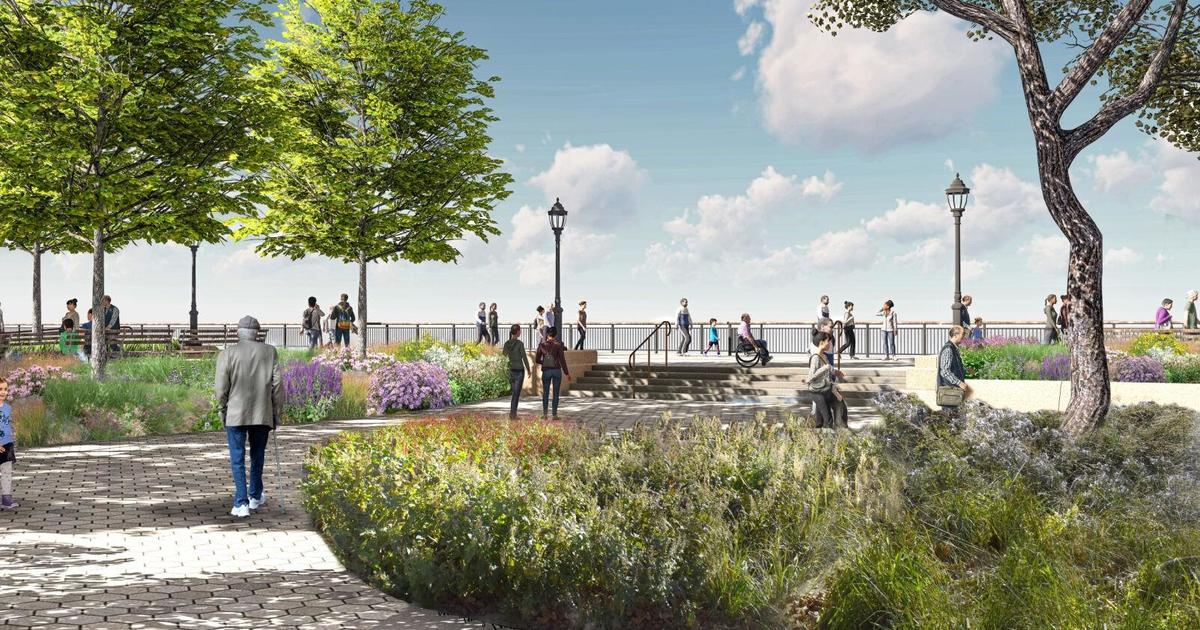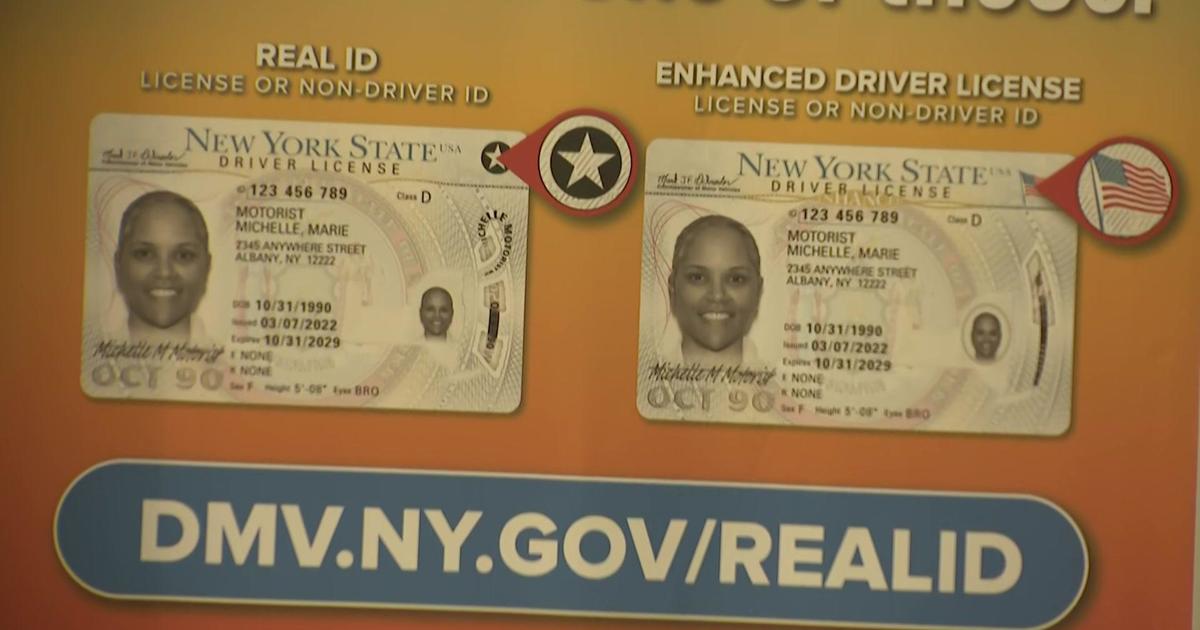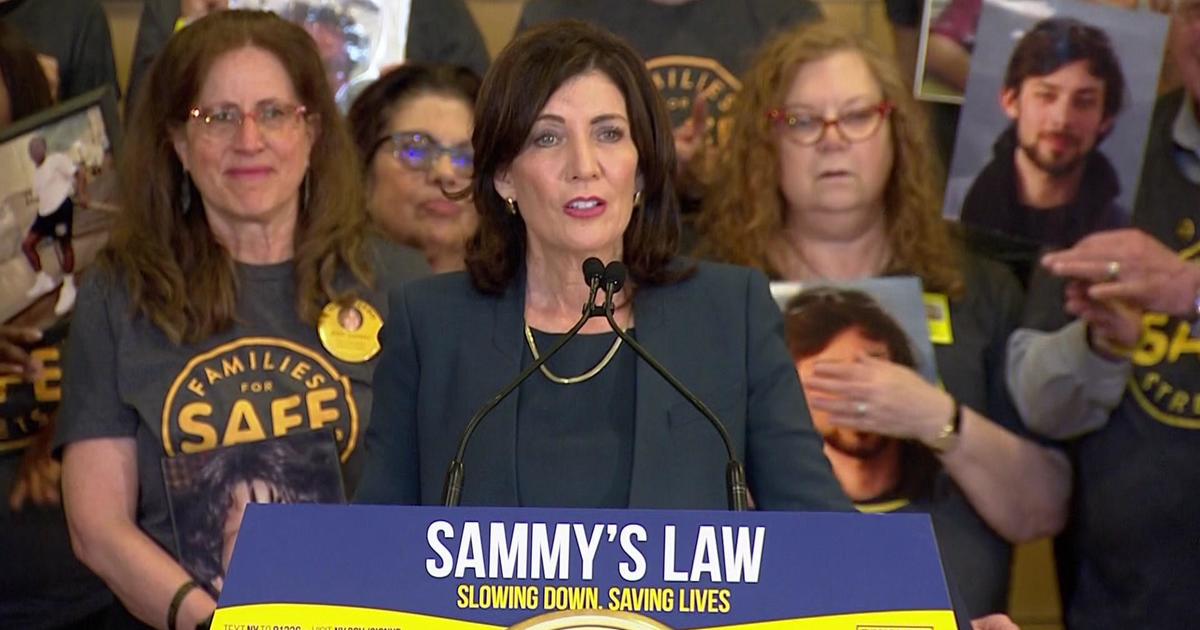Ida: 1 year later, checking back with families whose basement apartments flooded
NEW YORK -- A year after the remnants of Hurricane Ida struck the Tri-State Area, CBS2 is checking in with families whose homes were flooded to see how they're faring.
On Monday, CBS2's Jenna DeAngelis visited those impacted in Queens.
Ida came down hard on East Elmhurst, quickly flooding the streets and people's homes. Water rushed into Sandra Rosero's basement apartment, destroying everything inside.
"That was horrendous, watching the water rise all the way to where the light bulb fixtures are," Rosero said.
Her father is the landlord and explained he was letting her stay in the basement because he couldn't afford to convert it into a legal apartment for rent.
"Since I've experienced Ida in a basement with the flood, I'm traumatized from renting out anything in a basement, but I'm sure there are people that have no choice and have to live in it," Rosero said.
FLASHBACK: Mattress giveaway in Queens highlights depth of need that remains 3 weeks after Ida
Rosero has been living in a Brooklyn hotel while working with a case worker to find a new apartment.
Liliana Ferrufino, whose basement unit on Astoria Boulevard was also flooded, is now living in a new apartment, where her family feels safe.
"Now that we live in the second-floor apartment, we don't need to be worried about our house flooding," said Jose Barrera, Ferrufino's son.
Barrera translated as his mother described their experience in Spanish.
"It was way too traumatizing," Barrera said. "We just let it flood because we couldn't stop it. It was just way too powerful."
When asked if the family lost everything, Ferrufino said, "Everything, everything. It was really hard."
But they're all just grateful they survived.
Most of New York City's storm-related deaths were in basement apartments.
"It could have been me and I'm very thankful. I'm grateful for everything I have," Rosero said.
A year later, many are focused on making sure something like that doesn't happen again. CBS2 sat down the nonprofit behind a study titled "Preventing Another Ida," and local leaders, pushing to legalize basement apartments.
"It's heartbreaking to see something like Ida happen because, again, it's preventable," said Vanessa Pascual Barrios of the Regional Plan Association.
The nonprofit released the report, outlining ways the city and state could address growing flood risks.
One recommendation is increasing storm water management capacity with a focus on green infrastructure. One example is rain gardens, which are planted areas in the sidewalk designed to absorb storm water.
The study found only three acres of land in central Queens are devoted to storm water management.
"If we only increase that by 40 times, meaning only 120 acres that can actually handle an influx of storm water in future storms," Pascual Barrios said.
"When people think of 120 acres, that seems like a lot," DeAngelis said.
"It's only 5 percent of the existing road space," Pascual Barrios said. "I believe that if we had improved sewer management, if we had improved green infrastructure, we wouldn't have 11 people dying in their basement apartments."
The Regional Plan Association is also pushing for the safe legalization and regulation of basement apartments.
Assembly member Harvey Epstein has been pushing for state legislation to make this happen.
"So one, that a family can live there, two, to deal with the affordable housing crisis, and, three, to ensure that you know the issues that we saw last year don't happen again," Epstein said.
DEP Commissioner Rohit Aggarwala said Mayor Eric Adams' administration supports this. He also shared the city has an aggressive plan in the works to expand green infrastructure and cloudburst management projects.
"Where we figure out how can you design the public infrastructure -- the streets, the parks, the playgrounds -- to be those holding areas of last resort so water stays out of people's homes," Aggarwala said.
To check out the full report "Preventing Another Ida," please click here.




